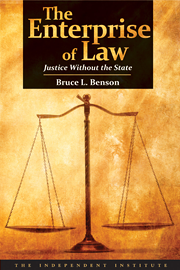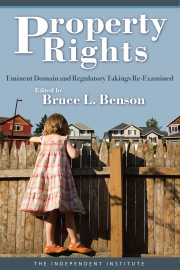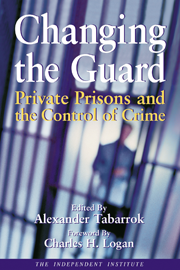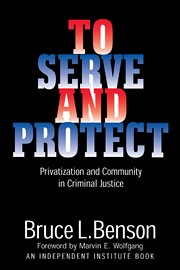If national opinion polls are an indication, the past few weeks have not been good for the FBI. From news of the McVeigh mistake to this week’s report by the General Accounting Office that the two-year-old, multi-million dollar FBI unit created to protect both the public and private sectors from computer attacks fails to do its job, Americans are rightly disgusted. Rep. David Obey (D-Wisc.) recently told FBI Director Louis Freeh, “I think we have today something close to a failed agency.”
But the FBI’s failure to divulge reams of evidence to McVeigh’s lawyers is just the latest bungle in a history stretching back to when President Theodore Roosevelt created its predecessor, the “Bureau of Investigation.” The Bureau’s first major scandal occurred in 1924 when Interior Secretary Albert Fall attempted to use the Bureau to frame Senator Burton Wheeler of Montana.
Regrettably, blunders and cover-ups are not confined to the FBI. Despite cover-up attempts, similar scandals involving both state and local prosecutors and police show that misrepresentation and even falsification of forensic evidence occurs regularly. DNA tests freeing individuals awaiting execution reveal not only innocence, but wrongful conviction as well.
Discounting the media’s tendency to sensationalize, stories of police abuse and injustice at all levels have been grabbing headlines throughout America’s postbellum era.
Yet, similar accounts of wrongdoing by private security establishments are virtually non-existent, even though such establishments were the sole providers of policing services in the U.S. prior to 1844, when the nation’s first government-run policing force was created in New York. And there remain many more private security employees than government police in the U.S. to this day.
A 1970 estimate put the total number of private security personnel in the United States at roughly equal to the number of government police. By 1990, there were approximately 2.5 private security officers (about 1.5 million in total) to every public police officer, and the gap continues to increase.
The lack of scandal is largely attributable to a private firm’s responsibility for its employees’ actions, both in tort liability and maintaining profitability. Fear of invasion of privacy claims encourages private security firms to be judicious in the way they handle personal information.
In sharp contrast, when public police officers mishandle sensitive data (e.g., the FBI’s role in the Filegate scandal), or act negligently and even abusively—taxpayers usually provide the funding for legal settlements and court awards, and ensure that public police departments don’t go out of business.
But not always.
In 1993 in the small town of Sussex, New Jersey, after the entire four-officer police force was dismissed because of a drug scandal, the community contracted for police services with a private company, Executive Security & Investigations Services, Inc.
This arrangement was not a first in the United States, and indeed, the successful contracting out of crime control services represents a positive countervailing trend to the increasingly visible deficits in government policing. Such contracts are quite common in other parts of the world in, for example, Switzerland and the Bahamas.
Private firms also supply local, state and federal governments with a wide array of traditional police functions, such as dispatch, data processing, fingerprinting, crime labs, traffic control, and prisoner transport.
Investigative services can also be contracted out. In the mid-1960s, Florida Governor Claude Kirk was not satisfied with the state police’s efforts against organized crime so he commissioned Wackenhut, Inc. to investigate. The nearly yearlong investigation produced more than 80 criminal indictments, some naming corrupt public officials.
In the decade following, Multi-State, Inc. “rented” skilled narcotics agents to small town police forces in Ohio and West Virginia. After only a few months of operation, Multi-State was responsible for more than 150 arrests.
Similarly, at the end of World War I the federal government gave full police powers to what has subsequently been called “the railroad police” so they could deal with interstate crime investigations (many states have granted them the same powers for intra-state crimes), and they have been employed by the nation’s railroads ever since.
The railroad police quickly compiled what must be considered a remarkable record of effectiveness, particularly relative to public police forces. In 1992, major railroads employed 2,565 fully-commissioned law enforcement officers whose clearance rate (reported crimes cleared by an arrest) adjusted for under-reporting was 2.86 times greater than the similarly adjusted rate for public police.
The Sears Loss Prevention Department employed approximately 6,000 security personnel throughout the United States to protect roughly 2,000 different properties in 1995, making it the fourth largest private police force in the country at the time. Many other corporations, homeowners associations, and business communities now have their own private policing arrangements.
Whereas manufacturing firms and retail businesses rank first and second in contracting with security firms, government agencies rank third in employing private security for guarding prisoners in hospitals, public buildings, sports arenas, schools, public housing projects, convention centers, courts, airports, and other public facilities. Precise data on the level of such activities is not available, but public expenditures for such services clearly run in the billions of dollars.
Few developments are more indicative of the inability of public police to satisfactorily cope with crime than the burgeoning private security market, estimated to be the second fastest growing industry in the country. Not only are governments turning to the private sector for help, but voters in many communities have turned to private alternatives rather than approving funds for more public policing.
Although public police employment has remained fairly constant for decades, between 1964 and 1997, the number of specialized security establishments grew by more than 800 percent while employment by these establishments increased by almost 925 percent, according to data from the Census Bureau.
The market has been providing us with a successful alternative to the political and bureaucratic delivery of policing services, if only we would pursue it further. Private firms in competitive markets almost always offer better service at lower costs than their government counterparts. However, the ultimate benefit to all Americans from privatizing more police services would not just be greater efficiency, but greater justice.
Calls on Congress to once again investigate the FBI miss the mark. Changing the political and bureaucratic delivery of policing services requires fundamental reform, and the growth of the private security industry strongly suggests how those reforms ought to take shape.















